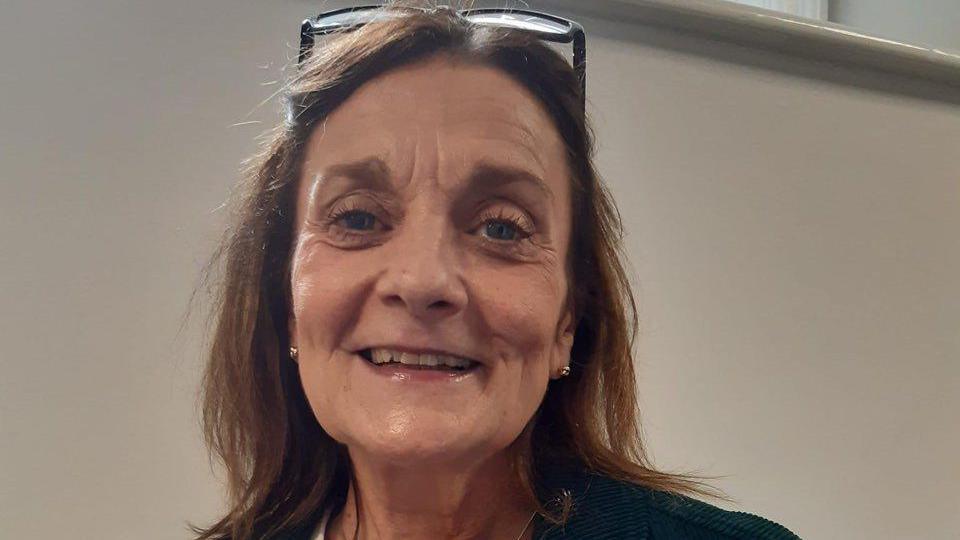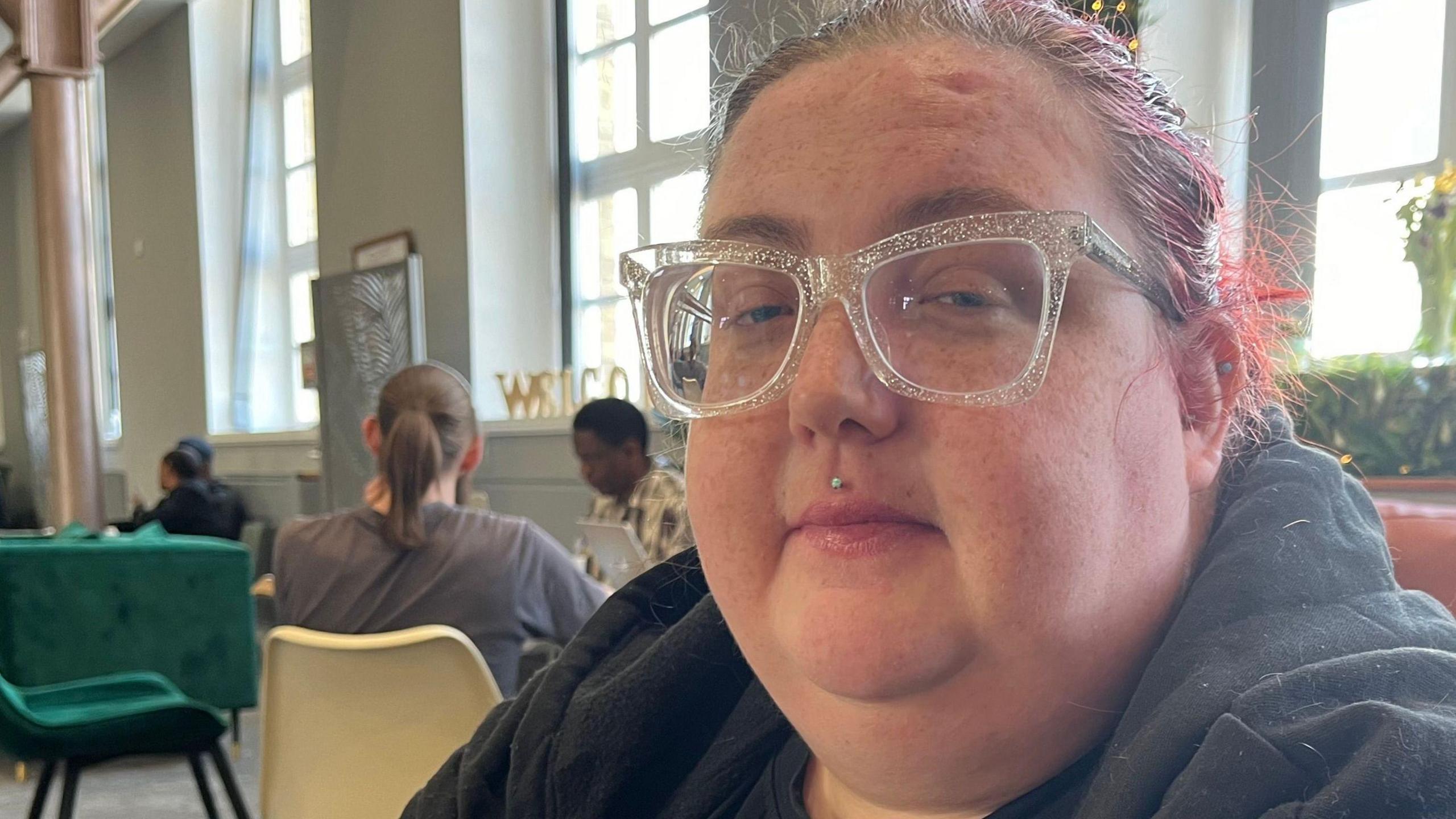Youth social worker reflects on 25 years of change

Carys Bose will work with Bradford 2025 after being made redundant
- Published
A retiring social worker said she has worked with children who were forced to steal essential items such as shampoo during her time in the job.
Carys Bose, 61, joined the council-run Bradford Youth Service in 1998 after an interview in which she was questioned by some of the young people she would be helping.
She said that in 25 years the service had helped to improve community relations but that due to "external factors", many children were '"lost".
Ms Bose, who has accepted redundancy but will take up a new role with the Bradford City of Culture 2025 team, spoke to the BBC about her involvement in preventing sexual exploitation and lobbying for more funding.
Speaking about the recruitment process when she was a young performing arts graduate in 1998, she said: "It was scary. I honestly didn't know what I was doing but I built a relationship with those young people."
She believed anti-social behaviour had been reduced when the youth service's work had been implemented.
Much of her recent caseload focused on improving mental health among clients, and she said their issues had been exacerbated by poverty.
Shocking conditions
"I had one young person recently who had stolen a bottle of shampoo," she said.
"When we asked her why she'd done it, she said 'because my mum can't afford to buy me any and I need to wash my hair'."
Mrs Bose added: "There's always been poverty in certain sectors, but I think there's a bit more of it now."
She described the shocking conditions she found when visiting family homes.
Mrs Bose said: "We go into houses and there's no furniture, there's no food in the cupboard and you just think this isn't a way to live, and it's just upsetting.
"And so we support the young person in that family to show them there is a different world out there."
Cybersecurity and safeguarding
Several years ago, the service worked with West Yorkshire Police to tackle "grooming parties" which were being held at community centres in Bradford and targeting vulnerable teenagers.
"I worked very, very closely with a local sergeant, because these parties started popping up and they looked a bit dodgy," she said.
"So I was getting the information about where they were going to be and the police were going in and shutting them down.
"And that was brilliant because we safeguarded a lot of young people."
Social media's emergence in the latter half of her career presented new challenges.
"We do a lot of work around cybersecurity, keeping young people safe on the internet from predators," Mrs Bose said.
But she said funding for youth work had been "constantly cut for 25 years" and needed more investment.
"We had a period in the 2000s when we were quite wealthy and we were able to offer so many opportunities, but since about 2010 we suffered cut after cut after cut," she said.
"We've had to look at creative ways of doing things and make the most out of every penny that we've got."
Bradford Council and the Ministry of Housing, Communities and Local Government were approached regarding funding levels but neither chose to comment.
Listen to highlights from West Yorkshire on BBC Sounds, catch up with the latest episode of Look North or tell us a story you think we should be covering here, external.
- Published13 June 2024
